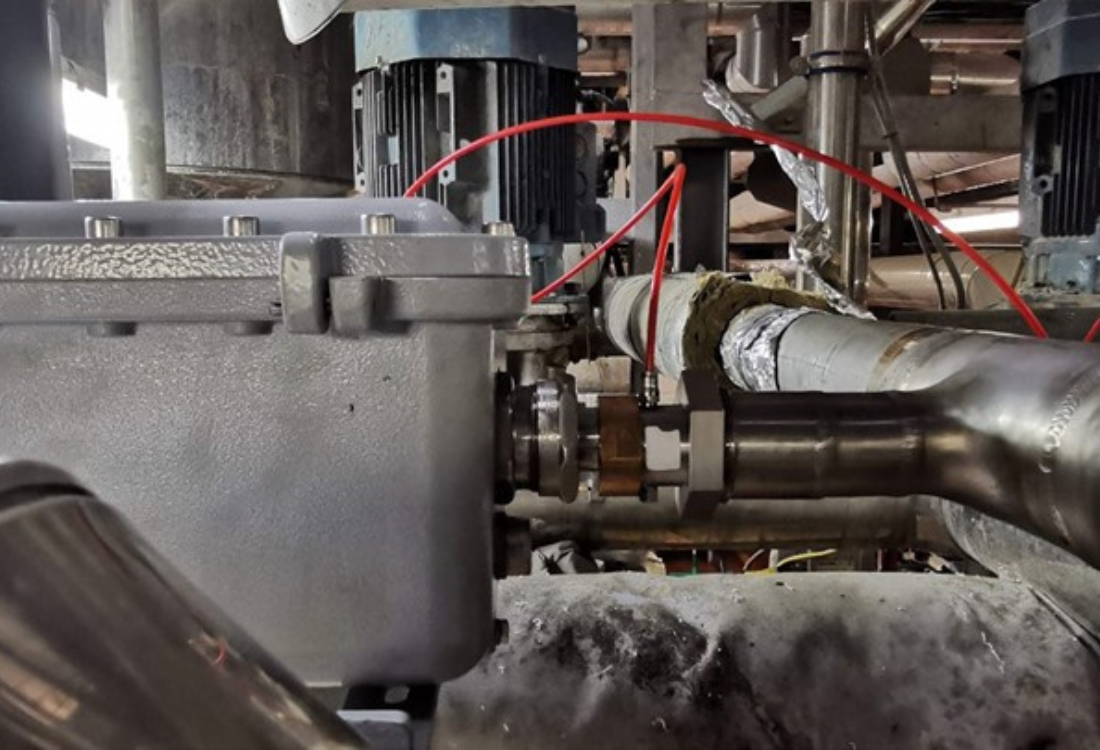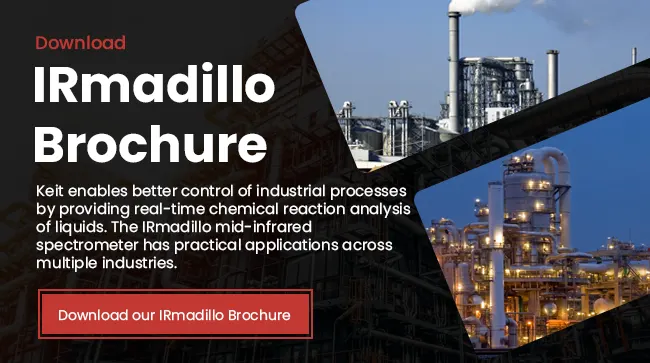
Quantification Of Phosphorus In Seed Oils
Introduction
Traditional approaches for measuring phosphorus (P) in crude and bleached oils involve taking a sample to the laboratory for Induction Coupled Plasma (ICP) testing. This is an expensive and slow process, and only informs the operators what the P content was when the sample was taken rather than the current P concentration.
Spectrometers allow continuous and detailed measurement of chemical concentrations in real time. Unfortunately, the majority of process spectrometers are based on near infrared light, which is fundamentally less informative than mid infrared light. Conventional mid infrared spectrometers (which often use a Fourier transform and are referred to as "FTIR spectrometers") have sensitive moving parts and fragile fiber probes – making them wholly unsuitable for production environments such as oil refineries.
The IRmadillo is a process analyzer built using FTIR spectroscopy, but with static optics: removing the need for moving mirrors or fiber probes, and dramatically improving stability, reliability, and ruggedness.

Example Use Cases
This application note presents data collected at multiple sites in the UK, USA and Europe. The instruments have been installed in water washed oil inlets, so the IRmadillo was calibrated to measure non-hydratable phospholipids (NHPs).
Once calibrated the on-line and real-time measurements produced by the IRmadillo can be sent to the control room and DCS, enabling real-time control of acid dosing. Further, down-stream installations measuring the degummed oil could be used for feedback trim on the acid dose, or to better control residence timing in the reactor.
Results
The graph shown in Figure 1 displays a single calibration built using SVR modeling for P in both sunflower and rapeseed oils over several months. (The spikes in the graph correspond to product changeover times). The customer typically takes a single sample per batch of oil and assumes that the P level remains constant throughout that batch. This calibration shows that the P changes throughout the processing.

Figure 1: The measurement of P in water-washed oil using an IRmadillo analyzer installed directly in-line using a simple T-piece.
If the assumed P level is too low then not enough acid will be dosed to remove phospholipids, meaning insufficient degumming will occur. If the assumed P level is too high then more acid will be used than needed, adding in chemical costs but also increasing removal and cleaning costs further downstream.
The IRmadillo can operate at a very wide set of chemical concentrations - ranging from 100 % down to sub-ppm levels of detection. In this case it has also been used to measure low phospholipid soybean oil, as shown in Figure 2. Typical instrument measurement performances are:
- Sunflower and rapeseed oils (5 - 300 ppm concentration range): ± 5 - 10 ppm
- Soybean oil (0.6 - 2 ppm concentration range): ± 0.5 ppm

Figure 2: Measurement output of an IRmadillo measuring P in water-washed soybean oil
The implementation of real-time and continuous measurement dramatically reduces the cost of analysis (as ICP is no longer required) and enables closed loop control of phosphoric or citric acid dosing for degumming.
Conclusions
This work has shown that the IRmadillo spectrometer is easy to install directly into various locations in an oil refinery and can be used to measure a variety of different feedstocks and P levels.
The IRmadillo has been successfully calibrated to measure total P regardless of oil feedstock or the exact chemical species (i.e. choline, ethanolamine, or the fatty tail) providing continuous and real-time measurement to the DCS. Additionally, the use of the instrument provides continuous measurement as opposed to a single point where it's clear that continuous monitoring provides a more accurate picture of the process as in Figure 1.

Figure 3: IRmadillo instrument installed directly into a water-washed oil inlet pipe using a simple T-piece
Keep In Mind
The IRmadillo can be calibrated to measure a very large range of chemicals, all in real time. It has effectively measured free fatty acids (FFA), water/moisture and many different metals (Fe, Cu, Ca and Mg) simultaneously in a range of different oil types. It can even measure iodine value (IV), viscosity and melting point profiles. Once calibrated, the IRmadillo becomes a universal chemical concentration meter - for all types of fats and oil processing.

